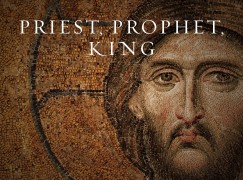

LENTEN BOOTCAMP DAY 5 – PRUDENCE
DAY 5 – MOTHER OF DIVINE GRACE, PRAY THAT WE RECEIVE THE GIFT OF PRUDENCE!
Becoming “Masters of Mental Prayer.” Each day, during Lent, we will practice “Mental Prayer,” as we reflect on, and desire the greatest gifts, so God may show each one of us a “More Excellent Way” (1 Cor. 12:13). Do your best to find a minimum of 15 minutes each day. By the regular practice of Mental Prayer, you will become more attuned to the “Still Small Voice.”
GUIDE TO MENTAL PRAYER: HERE
HEROES’ WORDS
“The prudent man considers things afar off, in so far as they tend to be a help or a hindrance to that which has to be done at the present time.” -St. Thomas Aquinas
MEDITATION
Human virtues are firm attitudes, stable dispositions, habitual perfections of intellect and will that govern our actions, order our passions, and guide our conduct according to reason and faith. They make possible ease, self-mastery, and joy in leading a morally good life. The virtuous man is he who freely practices the good.
The moral virtues are acquired by human effort. They are the fruit and seed of morally good acts; they dispose all the powers of the human being for communion with divine love (CCC1804).
Four virtues play a pivotal role and accordingly are called “cardinal”; all the others are grouped around them. They are: prudence, justice, fortitude, and temperance. “If anyone loves righteousness, [Wisdom’s] labors are virtues; for she teaches temperance and prudence, justice, and courage.” These virtues are praised under other names in many passages of Scripture (CCC 1805).
Prudence is the virtue that disposes practical reason to discern our true good in every circumstance and to choose the right means of achieving it; “the prudent man looks where he is going.” “Keep sane and sober for your prayers.” Prudence is “right reason in action,” writes St. Thomas Aquinas, following Aristotle. It is not to be confused with timidity or fear, nor with duplicity or dissimulation. It is called auriga virtutum (the charioteer of the virtues); it guides the other virtues by setting rule and measure. It is prudence that immediately guides the judgment of conscience. The prudent man determines and directs his conduct in accordance with this judgment. With the help of this virtue we apply moral principles to particular cases without error and overcome doubts about the good to achieve and the evil to avoid (CCC 1806).
BY THY HOLY AND IMMACULATE CONCEPTION, OH MARY, DELIVER US FROM EVIL. AMEN – OUR LADY OF AMERICA








